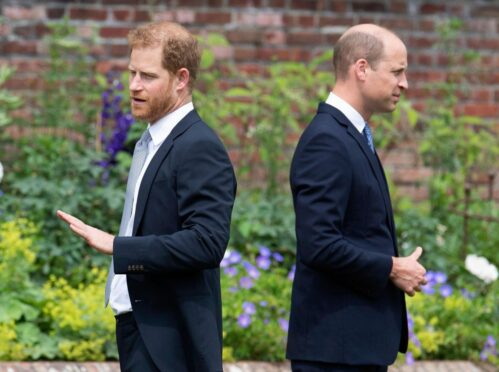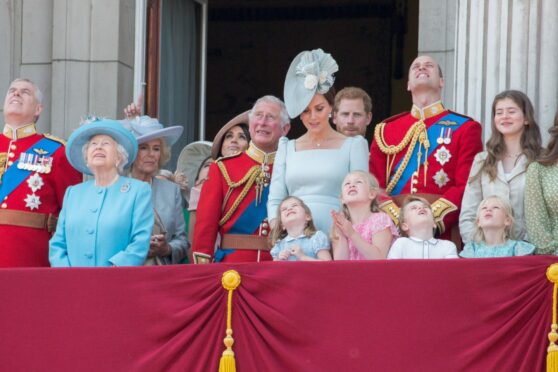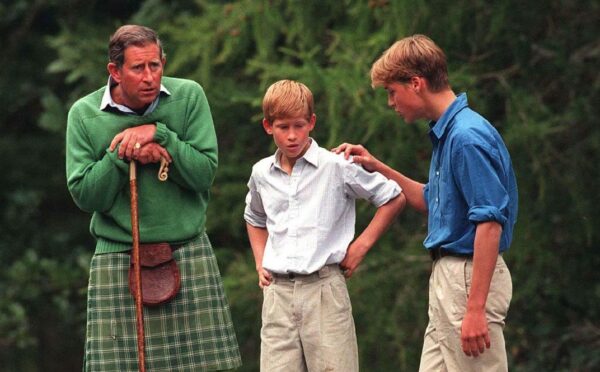
A new year has dawned but there’s nothing bright about it. With trains stopping, schools closing and Covid cases rising, there’s no shortage of serious news to preoccupy us. Still, we’re all talking about Harry.
The big surprise is that there’s anything left to say but the publicity-hating Duke and his Duchess have a PR machine as sleek as their private jet. Just as the last piece of pathos was wrung from their story by Netflix, along comes the print version.
Harry certainly didn’t tone it down, as many thought he might, in the wake of his grandmother’s death. His book, Spare, is emotional carnage where his family are concerned but somehow one cannot look away.
It’s all there: fraternal fisticuffs, broken dog bowls, baggy bridesmaid dresses and not-so-wicked stepmothers. My life is not enhanced by knowing that Kate disapproved when Meghan asked to borrow her lip gloss (it is a bit icky, ladies, as we all know), or that he lost his virginity in a field behind a pub (icky squared). Spare certainly spares no one’s blushes but is compelling all the same. Millions have already devoured every morsel after copies leaked in Spain before the official publication.
Harry’s tell-all is fascinating for very mundane reasons – but it is also unwittingly radical. It’s a tale many families can relate to. Sibling rivalry is hardly uncommon, even where parents are scrupulous to avoid favouritism.
One radio programme last week even wheeled out an expert who said it was in our genes, because animal siblings compete for resources. At least two baby hyenas in every litter are killed by their brother or sister, apparently.
William and Harry – or Harold and Willy as they like to call each other – are not hyenas and they certainly do not need to scrabble or scrap for resources. Many will recognise the brotherly conflicts from their own lives but know that in most families, offspring put away such childish things. These guys were pushing 40 at the time of the dog bowl incident, when the heir allegedly pushed the spare into the canine receptacle.
Their damaging upbringing has clearly left scars. Not only did they lose their mother early – the most dreadful Adverse Childhood Experience – but they were raised in a family incapable of healing them, a family which paraded them before the world’s cameras in the wake of her devastating death.
The book exposes the absurdity and unfairness of the monarchy as an institution. The hereditary principle at the heart of the royal family dictates that one sibling really is better than the other and will get a far larger share of the resources. Even his loving mum once described Harry as a “back-up”. We now know that Charles joked about it on the day of his birth. In kicking back against being the spare, Harry destabilises not just the heir but the foundations on which the House of Windsor is built.
Yet in his bid to command the narrative, he undermines himself. Bragging about the men he killed – even those fighting for a hateful organisation like the Taliban – compromises the safety of Harry and perhaps even Meghan and the children.
History tells us life in the royal goldfish bowl can lead to reckless behaviour. When Diana, Her True Story, was published in 1992, the then chairman of the Press Complaints Commission accused the media of “dabbling their fingers in the stuff of other people’s souls”.
As it turned out, the journalist Andrew Morton was merely Diana’s ghost writer. She had invited the world to dabble.
Harry has learned from Diana how to command attention yet has failed to heed the risks. She opened her soul in her fight against the palace machine but, in doing so, unleashed a beast and lost control. We know what happened next. As her brother said at her funeral, she was hunted to death.

Enjoy the convenience of having The Sunday Post delivered as a digital ePaper straight to your smartphone, tablet or computer.
Subscribe for only £5.49 a month and enjoy all the benefits of the printed paper as a digital replica.
Subscribe
